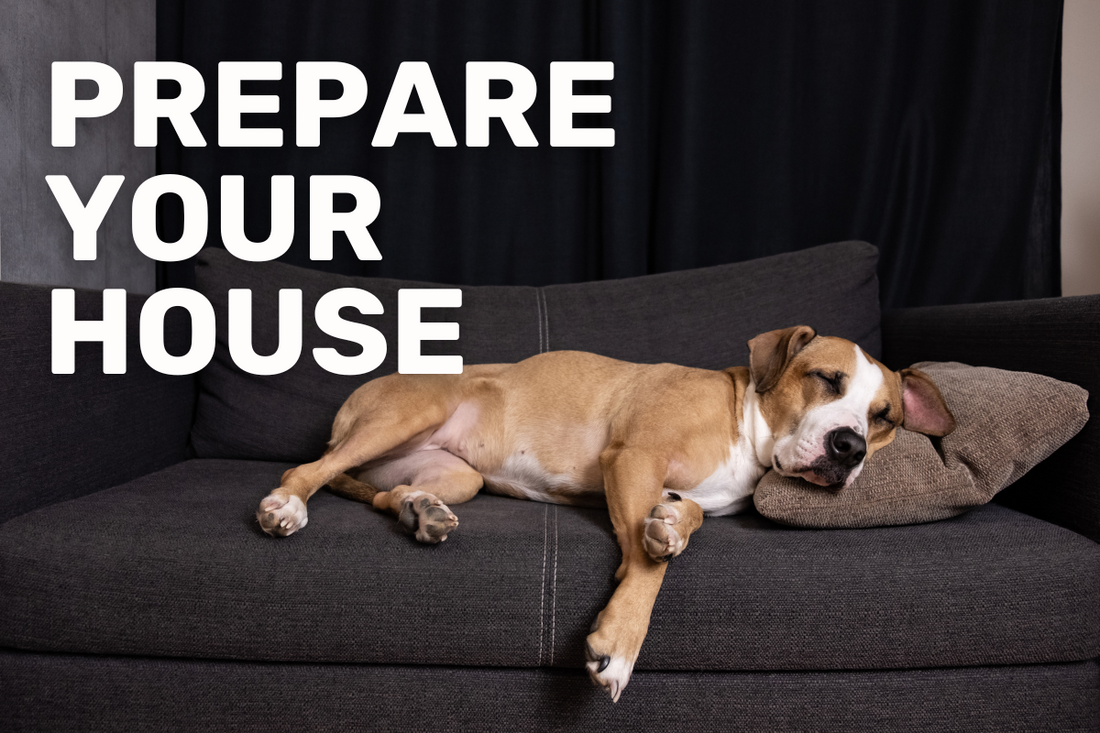






Raising Cats and Dogs for Stress and Anxiety Relief: An In-Depth Guide
Introduction
In today's fast-paced world, managing stress and anxiety is more important than ever. Raising cats and dogs offers a natural, heartwarming solution. This guide explores the therapeutic benefits of pet ownership and how these animals can significantly reduce stress and anxiety levels.
The Science of Pet Ownership and Stress Relief
Studies indicate that the presence of cats and dogs can lower stress hormones like cortisol, while increasing the production of serotonin, a mood-stabilizing hormone. The act of petting or playing with a pet can create a sense of peace and joy.
Choosing the Right Pet
When selecting a pet, it's essential to consider one that aligns with your lifestyle and living situation. Different breeds of cats and dogs have varying needs, behaviors, and energy levels. For instance, some dog breeds like Border Collies or Australian Shepherds require more exercise and mental stimulation, making them ideal for active individuals or families. Conversely, breeds like the French Bulldog or the Persian cat are more suited for a laid-back, indoor lifestyle. Understanding the temperament of the pet is equally important. Some animals may be more independent or aloof, while others crave constant attention and companionship. Assessing your daily routine, living space, and the amount of time you can dedicate to pet care will help you make an informed decision. Additionally, consider long-term commitments and the pet's lifespan, ensuring that your pet will be a beloved part of your life for years to come.
Creating a Pet-Friendly Home
Establishing a safe and comfortable environment for your pet is crucial for their health and happiness. This involves more than just providing food and shelter. Your home should cater to the physical and psychological needs of your pet. For dogs, having a designated play area, secure fencing, and a comfortable resting place is essential. For cats, consider installing cat trees, scratching posts, and cozy hideaways to stimulate their natural behaviors and provide a sense of security. Ensure that your home is free from toxic plants, harmful chemicals, and unsafe household items. Regularly check for potential hazards like small objects that could be swallowed or electrical cords that could be chewed. Additionally, creating a quiet and peaceful area where your pet can retreat when stressed or overwhelmed is essential for their well-being.
Routine and Structure with Pets
Having a routine for feeding, grooming, and exercise can bring structure to both the pet's and the owner's life, helping to alleviate feelings of anxiety and stress.
Maintaining a consistent routine for your pet can significantly benefit both you and your pet. Regular feeding times, exercise schedules, and grooming sessions create a sense of security and predictability for your pet, reducing their anxiety and stress. For the owner, this structure can bring a sense of order and accomplishment, particularly for individuals who might struggle with their own routines. Consistency in training and behavior expectations also fosters a better understanding and bond between you and your pet. It's essential to balance the routine with flexibility to accommodate changes in your life and your pet's needs as they age.
Emotional and Social Benefits
Pets offer companionship and unconditional love, which can be especially comforting for those dealing with stress or anxiety. They also encourage social interaction and outdoor activities..
The emotional and social benefits of pet ownership are profound. Pets provide a unique form of companionship that is often unconditional and non-judgmental. They can sense emotions and offer comfort during difficult times, reducing feelings of loneliness and isolation. This emotional support can be particularly valuable for individuals with mental health challenges like depression or anxiety. Pets also encourage social interaction, whether it's meeting other pet owners during walks or engaging with online communities dedicated to pet care. They can act as social catalysts, making it easier for individuals to connect with others, enhancing their social life and community involvement.
Considerations and Challenges
Pets offer companionship and unconditional love, which can be especially comforting for those dealing with stress or anxiety. They also encourage social interaction and outdoor activities.
While the benefits of pet ownership are numerous, it's essential to consider the responsibilities and challenges involved. Caring for a pet requires time, effort, and financial resources. Veterinary care, food, grooming, and other pet supplies can add up, and potential pet owners should be prepared for these ongoing costs. Additionally, pets require a commitment of time and attention, and neglecting these needs can lead to behavioral issues and decreased quality of life for the animal. It's important to evaluate your lifestyle and ensure you can provide a stable and loving home for a pet. Also, consider future life changes such as moving, changes in work schedule, or family dynamics that could impact your ability to care for a pet. Preparing for these possibilities will help ensure a long and happy relationship with your pet.
FAQs
-
Q: Can any dog or cat breed help reduce stress?
A: While all pets can offer companionship, some breeds are known for their particularly calm demeanor. -
Q: How much time should I spend with my pet to reduce anxiety?
A: While all pets can offer companionship, some breeds are known for their particularly calm demeanor.
Conclusion
Raising cats and dogs can be a deeply rewarding experience, offering numerous emotional and physical health benefits. Their presence can significantly improve the quality of life, especially for those seeking natural ways to manage stress and anxiety.
The content presented in this article is intended for informational purposes only and is not meant to replace professional advice, diagnosis, or treatment. Any use of this content is at the sole responsibility of the user. It is advised to consult with a qualified professional for advice or treatment before making any health-related decisions or decisions regarding pet care.
